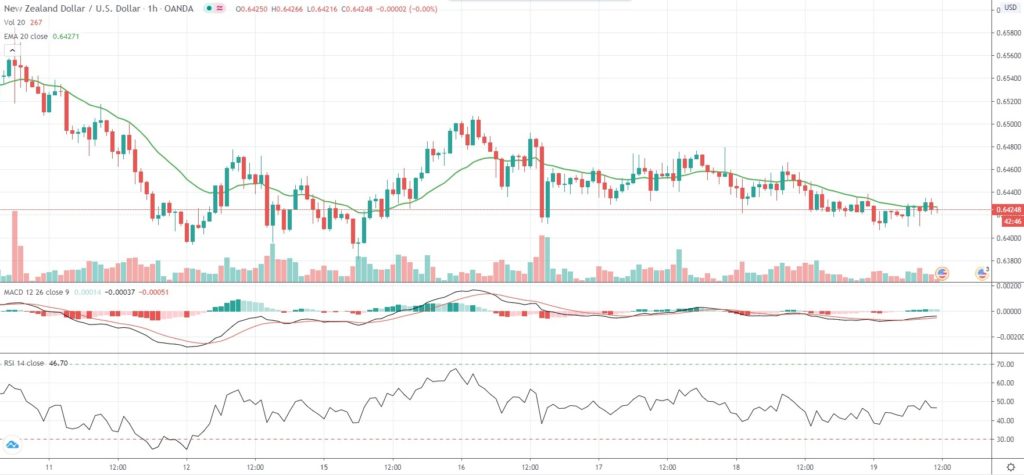NZD/USD retreated for a second straight trading day on Friday and was poised to register its second successive week of losses as well, since rising geopolitical tensions and concerns over a second wave of the COVID-19 illness heightened the safe haven appeal of the US Dollar.
Reports of a surge in new COVID-19 infections in a number of US states along with new cases in Beijing this week raised concerns over renewed lockdowns and cooled market optimism over a swift economic recovery. The number of confirmed cases worldwide has already surpassed 8.30 million, while the death toll has reached 447,985.
“Even if we do not see a ‘second wave’, a renewed rise in infection numbers illustrates that things are not going to return to normal for a long time,” Commerzbank analysts wrote in an investor note.
Meanwhile, tensions between nuclear-armed neighbors China and India remain high, regardless of efforts by the two countries to defuse a military confrontation. 20 Indian soldiers reportedly perished during a violent hand-to-hand combat in the Galwan Valley on June 15th and 76 more troops sustained injuries. Other reports stated there had been casualties on the Chinese side as well, though the government has not yet disclosed any. Despite talks between military officials after the clash, no breakthrough has so far been reported.
The greenback remained supported also after a combination of stronger-than-expected rebound in the Philadelphia Fed Manufacturing Index in June (to 27.5 vs. -23.0) and higher-than-expected number of initial jobless claims (1.508 million vs. 1.300 million) reported in the business week ended June 12th.
As of 11:25 GMT on Friday NZD/USD was inching down 0.03% to trade at 0.6426, after touching an intraday low of 0.6407 in early Asian session, or a level not seen since June 15th (0.6381). The major pair has retreated 0.32% so far this week, following a 0.95% drop in the business week ended June 12th.
In terms of economic calendar, a report by the US Bureau of Economic Analysis may show the deficit on the country’s current account narrowed to $103 billion during the first quarter of 2020, according to market expectations, from $109.8 billion in Q4 2019. The fourth-quarter deficit was equivalent to 2.0% of US Gross Domestic Product, or a decrease from 2.3% in Q3. The official data will be released at 12:30 GMT.
At 14:15 GMT Boston Federal Reserve Bank President Eric Rosengren is scheduled to speak at the Greater Providence Chamber of Commerce on the US economy and current financial environment.
Additionally, at 16:00 GMT Fed’s Vice Chairman for Supervision Randal Quarles is expected to participate in a WHF Public Policy Event via a webcast. The topic will be announced at the start of his remarks.
And at 17:00 GMT Fed Chair Jerome Powell is scheduled to speak during the Federal Reserve Bank of Cleveland virtual discussion on building a resilient workforce during the COVID-19 era.
Bond Yield Spread
The spread between 1-year New Zealand and 1-year US bond yields, which reflects the flow of funds in a short term, equaled 4.2 basis points (0.042%) as of 10:15 GMT on Friday, up from 2.2 basis points on June 18th.
Daily Pivot Levels (traditional method of calculation)
Central Pivot – 0.6442
R1 – 0.6466
R2 – 0.6503
R3 – 0.6527
R4 – 0.6551
S1 – 0.6405
S2 – 0.6381
S3 – 0.6344
S4 – 0.6307






